This article was medically reviewed by Erik Kramer, DO, MPH and by wikiHow staff writer, Megaera Lorenz, PhD. Dr. Erik Kramer is a Board-Certified Primary Care Physician at the University of Colorado. With over 15 years of experience, his clinical interests include obesity and weight management, diabetes care, and preventive care, as well as embracing a holistic approach to primary care. He received his Doctorate in Osteopathic Medicine (D.O.) from the Touro University Nevada College of Osteopathic Medicine and completed his residency at Central Maine Medical Center. Dr. Kramer is a Diplomate of the American Board of Obesity Medicine.
There are 19 references cited in this article, which can be found at the bottom of the page.
This article has been viewed 44,969 times.
Getting a diagnosis of HIV or AIDS can be deeply upsetting and frightening. Fortunately, with proper medical treatment, you can live a full, healthy life with HIV. In addition to taking medications to manage your condition, you can increase your health and quality of life by practicing good self-care, such as exercising and eating well. Since dealing with HIV/AIDS often takes a toll on your emotional health, it’s also important to reach out to your loved ones or a professional for help and support. However you may feel about your diagnosis of HIV/AIDS, remember that your feelings are valid and that you are not alone.
Steps
Getting Medical Treatment
-
1Start treatment as soon as possible after your diagnosis. If you’ve tested positive for HIV, make an appointment with your doctor right away to discuss your diagnosis and treatment options. The sooner you start treating your condition, the better chance you have of keeping the infection under control and enjoying the best possible quality of life.[1]
- Your doctor will probably recommend running tests to determine how severe your infection is and what kind of treatment will work best for you.
- They may take samples of your blood to determine how much the virus has already damaged your immune system, how much of the virus is in your bloodstream, and whether the strain you have is resistant to any medications.[2]
-
2Find a doctor who specializes in treating HIV/AIDs. If your primary care doctor doesn’t have experience treating HIV/AIDS, ask them to recommend someone who does, such as an infectious disease doctor who treats patients with HIV/AIDS often. It’s important to work with a doctor who understands the condition and current treatment options, and to follow up with them regularly to monitor your condition. See your doctor as often as they recommend, and don’t hesitate to call then between appointments if your symptoms change or get worse.[3]
- If you live in the U.S., you can find HIV care providers through the American Academy of HIV Medicine Referral Link website here: https://providers.aahivm.org/referral-link/referral-link-search?reload=timezone.
- If you have trouble remembering your appointments, use a planner or an app to help you keep track.
- Before your appointment, write down any questions or concerns that you want to discuss with your doctor so that you don’t forget.
-
3Take antiretroviral medications to manage your infection. The most effective treatment for HIV/AIDS is antiretroviral therapy (ART). This consists of taking a combination of medicines that work together to block the virus from reproducing and attacking your white blood cells. Your doctor will probably prescribe 3 different medications, which you must take every day for the rest of your life.[4]
- Let your doctor know if you are taking any other medicines, vitamins, or supplements, since some of these can interact with HIV medications and make them less effective.[5] For example, cholesterol medications commonly cause interactions. Have a pharmacist review your entire medication list to check for possible interactions.
- If you take your medications consistently, you may be able to reduce the amount of HIV in your bloodstream so much that it becomes undetectable. This will not only help you stay healthier, but will also reduce your chances of passing on the infection to someone else.
Warning: Never stop taking your medications or try to adjust your dose without talking to your doctor. If you stop taking your HIV medications, your infection could become worse or become resistant to drugs.
-
4Let your doctor know if you have any trouble taking your medications. From forgetting to take your pills every day to dealing with unpleasant side effects, there are a lot of reasons you might have difficulty keeping up with your medications. It’s vital to take your medications regularly to keep your infection from getting worse and to prevent resistance to the medications, so let your doctor know if you have any problems. They can help you come up with solutions and coping strategies.[6]
- Tell your doctor right away if you experience side effects such as nausea, vomiting, diarrhea, headaches, muscle pain, dizziness, or difficulty sleeping. They may be able to adjust your medications or prescribe something to minimize the side effects.[7]
-
5Work with your doctor to treat any other medical complications. If you have HIV/AIDS, you may also struggle with other medical conditions, such as secondary infections or organ damage. Work with your doctor to find out if you have any other health issues and figure out the best way to treat them. Your doctor may test you for a variety of conditions that can often occur along with HIV/AIDS, such as:[8]
- Liver and kidney damage
- Other sexually transmitted infections
- Tuberculosis
- Hepatitis
- Toxoplasmosis
- Urinary tract infections
-
6Stay up to date on your immunizations. Staying up to date on your vaccinations can help to prevent diseases that could pose serious complications for you. The immunizations your doctor recommends may vary depending on your age, condition, and CD4 count, but some of the immunizations that you might need include:[9]
- Influenza (Flu)
- Hepatitis A and B
- Tetanus, Diptheria, and Pertussis (TDaP)
- Pneumonia
- Meningitis
- Human Papilloma Virus (HPV) (if you are 26 years old or younger)
- Measles, Mumps, and Rubella (MMR)
- Varicella (Chicken Pox)
Managing Your Condition at Home
-
1Create a daily routine for taking your medications. Keeping up with a daily medication regimen can be difficult. To help you stay on top of your medications, work on establishing a consistent routine. Try to take your medicines at the same time each day. You might also find it helpful to:[10]
- Use a 7-day pillbox so that you can keep track of your daily doses throughout the week.
- Download an app that can send you reminders and help you track your medication use, such as the Medisafe Medication Management app or the Mango Health app.
- Ask a family member or friend to remind you to take your medication.
- If you plan to travel, make sure to take enough medication with you to last you through the trip.
Tip: The AIDSinfo HIV/AIDS Drug Database app from the U.S. Department of Health and Human Services is a great tool for learning about your medications and tracking your daily doses. You can download it free from the app store on your mobile phone or tablet.[11]
-
2Eat a healthy diet. Eating well will increase your energy levels and help boost your immune system. To stay your healthiest, eat plenty of fruits and vegetables, whole grains, and lean proteins (like white poultry meat, fish, and beans). Ask your doctor or a dietitian if you’re not sure what foods are best for you.[12]
- There’s evidence that certain dietary supplements, such as whey protein and acetyl-L-carnitine, may reduce some of the symptoms of HIV/AIDS and strengthen your immune system. Talk to your doctor before trying any supplements, however, since some of them may interfere with your medications.
- Let your doctor know if you have any concerns about your weight or appetite.[13]
-
3Avoid contaminated food or water. When you have HIV/AIDS, you have a greater risk of getting sick from eating foods or drinking water contaminated with bacteria or viruses. Make sure any food you eat is properly washed, prepared, and cooked, and stick to drinking bottled or filtered water. You can also stay safe by:[14]
- Avoiding raw foods, like sushi, raw eggs, or unpasteurized dairy products and juices.
- Staying away from raw sprouts, such as bean or alfalfa sprouts.
- Avoiding tap water or water from natural sources, such as rivers and lakes.
-
4
-
5Exercise regularly. Getting plenty of exercise can help you maintain strong bones and muscles, both of which can be weakened by the effects of HIV/AIDS and HIV medications. If you’re able to do so, try to get 30 minutes of moderate exercise (such as brisk walking, biking, or swimming) every day.[16]
- If you’re not sure what kinds of exercise are safe for you, talk to your doctor.
- Getting daily exercise can also lift your mood and help you manage your stress levels.
-
6Get plenty of good-quality sleep. Getting enough sleep can help your immune system stay healthy.[17] Try to go to bed early enough that you can get 7-9 hours of sleep each night (or 8-10, if you’re a teen). Let your doctor know if you have trouble getting enough sleep. You can also improve the quality of your sleep by:[18]
- Keeping your room dark, cozy, and quiet at night.
- Avoiding stimulants like caffeine and nicotine a few hours before you go to bed.
- Going to sleep and waking up at the same time each night.
- Establishing a relaxing bedtime routine, which might include reading, taking a warm shower, or doing a little meditation.
-
7Practice safe sex even if your partner is also infected. If your partner also has HIV/AIDS, they might have a different strain than you and contracting a different strain can pose additional challenges to managing your condition. Practicing safe sex will not only protect your partners, but can also prevent you from developing other sexually transmitted infections (STIs). Always use a condom when you have sex. You can also protect both yourself and your partner(s) by:[19]
- Limiting the number of people you have sex with. The more sexual partners you have, the more likely you are to get an STI or pass one on to someone else.
- Avoiding using drugs or alcohol before you have sex. These substances can impair your judgment and make you more likely to make risky decisions.
- Taking your HIV medications while you are sexually active. These will make you less vulnerable to new infections, and will also make it less likely for you to pass HIV on to your partner(s).
- Getting screened every 6 to 12 months for gonorrhea, chlamydia, and syphilis
-
8Establish a good hygiene routine. Good hygiene practices can help reduce your risk of developing an infection. A few good ways to protect yourself from diseases and infections include:[20]
- Washing your hands regularly with soap and warm water
- Brushing and flossing your teeth daily to prevent dental decay and gum disease
- Keeping your home clean and tidy
- Properly washing and disinfecting food preparation areas and utensils
- Washing your hands carefully after handling animals, pet cages, and litter boxes[21]
Coping Emotionally and Financially
-
1Practice stress-reducing techniques. Even though HIV/AIDS has become much easier to manage with current advances in medicine, being diagnosed with such a serious disease is frightening and stressful.[22] It’s normal to feel stressed, overwhelmed, scared, sad, or even angry when you’re coping with HIV. To help you deal with these feelings, try to focus on activities that you find enjoyable and relaxing, such as:
- Spending time with friends and family
- Working on hobbies or creative projects
- Doing meditation or yoga
- Exercising or spending time outdoors
-
2Reach out to your friends and family. When you’re dealing with HIV/AIDS, having a good support network is important. If possible, talk to trusted friends or family members about what you’re going through.[23] Let them know if there’s anything they can do to help, from providing a sympathetic ear to helping you get to medical appointments.
- If you don’t have any close family or friends you can talk to, reach out to your doctor. They may be able to connect you with support services in your community.
-
3Work with a counselor who has experience helping HIV/AIDS patients. Many people with HIV/AIDS can benefit from talking to a counselor. If you’re feeling emotionally overwhelmed because of your condition, ask your doctor to recommend a counselor or psychiatrist. They can help you develop coping strategies or possibly prescribe medications to improve your emotional symptoms.[24]
- It’s especially important to seek help if you experience symptoms of depression, such as persistent sadness, feelings of emptiness or hopelessness, anxiety, loss of interest in things you used to enjoy, and lack of appetite.
- Some HIV/AIDS clinics have mental health professionals on staff.
-
4Join a support group to connect with others dealing with HIV/AIDS. Talking to others who are also struggling with HIV/AIDS can be very helpful. Not only will a support group help you feel less alone, but other members of the group can share advice and insights into how they handle the stresses of their condition.[25] Look for a support group in your area online, or ask your doctor to recommend one.
- You can also find online support groups and discussion boards if meeting with a group in person isn’t practical for you.
-
5Look into financial support resources for HIV/AIDS patients. Paying for HIV/AIDS medications and treatment can be difficult, especially if you live in the U.S. and don’t have adequate health insurance. If you’re having trouble paying for your treatment, talk to your doctor. They may be able to direct you to financial support services in your area.
- If you live in the U.S., you may qualify for financial support through the Ryan White HIV/AIDS program, which helps low income or uninsured patients across the country.[26]
- The HIV Medicine Association also offers a list of patient assistance programs that may help: https://www.hivma.org/hivaids-resources/patient-assistance-programs/.
Protecting Others
-
1Talk to your sexual partner(s) about your condition. Telling your partner that you have HIV/AIDS can be incredibly difficult. However, it’s very important that you do so—both for their safety and yours. Sit down with them and have a direct, honest conversation about your condition. Do so before you have sex for the first time, if possible.[27]
- Choose a time when you and your partner are both calm and you are not likely to be interrupted. Find a quiet place where you can talk privately.[29]
- You might start by saying something like, “This is hard for me, but there’s something important I have to tell you. I found out a year ago that I’m HIV positive.”
- Be prepared to answer your partner’s questions. Try to stay calm and answer their questions openly and honestly.
Tip: If you have sexual or needle injection partners whom you might have accidentally exposed to HIV/AIDS, talk to your doctor. They can help you figure out the best way to notify them. They can even connect you with a partner notification service if you aren’t able to do it yourself.[28]
-
2Ask your partner to discuss using PrEP medications with their doctor. Being diagnosed with HIV/AIDS doesn’t mean you have to give up on having an active and healthy sex life. In addition to using condoms and taking your HIV medications, you can help protect your partner by suggesting that they take PrEP (pre-exposure prophylaxis) medications.[30]
- PrEP medications are antiretroviral medications that can prevent an HIV infection from developing. If your partner uses them consistently, they can reduce their risk of catching HIV by up to 92%.
- The current PrEP is Truvada (tenofovir disoproxil fumarate-emtricitabine), which is a combination medication.
- Your partner will need to be screened for HIV and other STDs every 3 months while taking PrEP.
-
3Don’t share needles or syringes with other people. If you take injectable drugs or medications, it’s very important that you do not share your needles or syringes with anyone else. Sharing needles can put them at risk of catching HIV, and can also increase your risk of picking up another infection (such as hepatitis).[31]
- If you have already shared needles or injection equipment with anyone else, let them know about your HIV+ status.
- Always use a new, clean syringe if you need to give yourself any kind of injection.
-
4Let your doctor know if you are pregnant and have HIV/AIDS. If you’re pregnant and HIV positive, there’s a chance you could pass on the infection to your baby before or after delivery. Tell your doctor immediately if you become pregnant so that they can take steps to keep you and your baby safe and healthy. You can help protect your baby by:[32]
- Taking your HIV medications consistently throughout your pregnancy
- Having a C-section instead of a vaginal birth
- Feeding your baby formula instead of breastfeeding them
- Giving your baby antiretroviral medications prescribed by your doctor for several weeks after they are born
Expert Q&A
-
QuestionCan you get rid of HIV?
 Dale Prokupek, MDDale Prokupek, MD is a board-certified Internist and Gastroenterologist who runs a private practice based in Los Angeles, California. Dr. Prokupek is also a staff physician at Cedars-Sinai Medical Center and an associate clinical professor of medicine at the Geffen School of Medicine at the University of California, Los Angeles (UCLA). Dr. Prokupek has over 30 years of medical experience and specializes in the diagnosis and treatment of diseases of the liver, stomach, and colon, including chronic hepatitis C, colon cancer, hemorrhoids, anal condyloma, and digestive diseases related to chronic immune deficiency. He holds a BS in Zoology from the University of Wisconsin – Madison and an MD from the Medical College of Wisconsin. He completed an internal medicine residency at Cedars-Sinai Medical Center and a gastroenterology fellowship at the UCLA Geffen School of Medicine.
Dale Prokupek, MDDale Prokupek, MD is a board-certified Internist and Gastroenterologist who runs a private practice based in Los Angeles, California. Dr. Prokupek is also a staff physician at Cedars-Sinai Medical Center and an associate clinical professor of medicine at the Geffen School of Medicine at the University of California, Los Angeles (UCLA). Dr. Prokupek has over 30 years of medical experience and specializes in the diagnosis and treatment of diseases of the liver, stomach, and colon, including chronic hepatitis C, colon cancer, hemorrhoids, anal condyloma, and digestive diseases related to chronic immune deficiency. He holds a BS in Zoology from the University of Wisconsin – Madison and an MD from the Medical College of Wisconsin. He completed an internal medicine residency at Cedars-Sinai Medical Center and a gastroenterology fellowship at the UCLA Geffen School of Medicine.
Board Certified Internist & Gastroenterologist No, but antiretroviral medications might help. Just keep in mind that antiretroviral medications only work on the HIV virus, and won't cure or prevent other STDs
No, but antiretroviral medications might help. Just keep in mind that antiretroviral medications only work on the HIV virus, and won't cure or prevent other STDs -
QuestionHow can I stay positive when I've been diagnosed with HIV?
 Ran D. Anbar, MD, FAAPDr. Ran D. Anbar is a pediatric medical counselor and is board certified in both pediatric pulmonology and general pediatrics, offering clinical hypnosis and counseling services at Center Point Medicine in La Jolla, California and Syracuse, New York. With over 30 years of medical training and practice, Dr. Anbar has also served as a professor of pediatrics and medicine and the Director of pediatric pulmonology at SUNY Upstate Medical University. Dr. Anbar holds a BS in Biology and Psychology from the University of California, San Diego and an MD from the University of Chicago Pritzker School of Medicine. Dr. Anbar completed his pediatric residency and pediatric pulmonary fellowship training at the Massachusetts General Hospital and Harvard Medical School and is also a past President, fellow and approved consultant of the American Society of Clinical Hypnosis.
Ran D. Anbar, MD, FAAPDr. Ran D. Anbar is a pediatric medical counselor and is board certified in both pediatric pulmonology and general pediatrics, offering clinical hypnosis and counseling services at Center Point Medicine in La Jolla, California and Syracuse, New York. With over 30 years of medical training and practice, Dr. Anbar has also served as a professor of pediatrics and medicine and the Director of pediatric pulmonology at SUNY Upstate Medical University. Dr. Anbar holds a BS in Biology and Psychology from the University of California, San Diego and an MD from the University of Chicago Pritzker School of Medicine. Dr. Anbar completed his pediatric residency and pediatric pulmonary fellowship training at the Massachusetts General Hospital and Harvard Medical School and is also a past President, fellow and approved consultant of the American Society of Clinical Hypnosis.
Pediatric Pulmonologist & Medical Counselor It can help to make sure you reduce all other stress in your life. Try practicing meditation or deep breathing exercises.
It can help to make sure you reduce all other stress in your life. Try practicing meditation or deep breathing exercises. -
QuestionI have been HIV-positive for three years and long for the day to be free of this disease. I would love to be part of any trial that helped find the cure, I have an undetectable viral load and CD4 count of around 1100. I have tried almost everything but I couldn't find any solution on my disease.
 Carrie Noriega, MDDr. Noriega is a Board Certified Obstetrician & Gynecologist and medical writer in Colorado. She specializes in women’s health, rheumatology, pulmonology, infectious disease, and gastroenterology. She received her MD from the Creighton School of Medicine in Omaha, Nebraska and completed her residency at the University of Missouri - Kansas City in 2005.
Carrie Noriega, MDDr. Noriega is a Board Certified Obstetrician & Gynecologist and medical writer in Colorado. She specializes in women’s health, rheumatology, pulmonology, infectious disease, and gastroenterology. She received her MD from the Creighton School of Medicine in Omaha, Nebraska and completed her residency at the University of Missouri - Kansas City in 2005.
Board Certified Obstetrician & Gynecologist It is important to continue any drug regimen you are on so that it keeps the disease undetectable. Don't stop taking the medications unless instructed by a physician. If you are looking for clinical trials that you may qualify for, the first place to start is by asking your treating physician if they know of any trials you qualify for. The second is at www.clinicaltrials.gov. All clinical trials are required to register their trial here.
It is important to continue any drug regimen you are on so that it keeps the disease undetectable. Don't stop taking the medications unless instructed by a physician. If you are looking for clinical trials that you may qualify for, the first place to start is by asking your treating physician if they know of any trials you qualify for. The second is at www.clinicaltrials.gov. All clinical trials are required to register their trial here.
References
- ↑ https://www.cdc.gov/hiv/basics/livingwithhiv/treatment.html
- ↑ https://www.mayoclinic.org/diseases-conditions/hiv-aids/diagnosis-treatment/drc-20373531
- ↑ https://www.cdc.gov/hiv/basics/livingwithhiv/understanding-care.html
- ↑ https://www.mayoclinic.org/diseases-conditions/hiv-aids/diagnosis-treatment/drc-20373531
- ↑ https://aidsinfo.nih.gov/understanding-hiv-aids/fact-sheets/21/51/hiv-treatment--the-basics
- ↑ https://www.cdc.gov/hiv/basics/livingwithhiv/treatment.html
- ↑ https://www.cdc.gov/hiv/basics/livingwithhiv/treatment.html
- ↑ https://www.mayoclinic.org/diseases-conditions/hiv-aids/diagnosis-treatment/drc-20373531
- ↑ https://www.cdc.gov/vaccines/adults/rec-vac/health-conditions/hiv.html
- ↑ https://aidsinfo.nih.gov/understanding-hiv-aids/fact-sheets/21/55/following-an-hiv-regimen---steps-to-take-before-and-after-starting-hiv-medicines
- ↑ https://aidsinfo.nih.gov/apps
- ↑ https://www.mayoclinic.org/diseases-conditions/hiv-aids/diagnosis-treatment/drc-20373531
- ↑ https://www.avert.org/living-with-hiv/health-wellbeing/taking-care-of-yourself
- ↑ https://www.mayoclinic.org/diseases-conditions/hiv-aids/diagnosis-treatment/drc-20373531
- ↑ https://www.avert.org/living-with-hiv/health-wellbeing/taking-care-of-yourself
- ↑ https://www.avert.org/living-with-hiv/health-wellbeing/taking-care-of-yourself
- ↑ https://www.mayoclinic.org/diseases-conditions/insomnia/expert-answers/lack-of-sleep/faq-20057757
- ↑ https://www.sleepfoundation.org/articles/how-get-good-nights-sleep
- ↑ https://aidsinfo.nih.gov/understanding-hiv-aids/fact-sheets/26/98/hiv-and-sexually-transmitted-diseases--stds-
- ↑ https://www.ncbi.nlm.nih.gov/pubmed/25481924
- ↑ https://www.mayoclinic.org/diseases-conditions/hiv-aids/diagnosis-treatment/drc-20373531
- ↑ https://www.cdc.gov/hiv/basics/livingwithhiv/mental-health.html
- ↑ https://www.avert.org/living-with-hiv/health-wellbeing/taking-care-of-yourself
- ↑ https://www.cdc.gov/hiv/basics/livingwithhiv/mental-health.html
- ↑ https://www.avert.org/living-with-hiv/health-wellbeing/taking-care-of-yourself
- ↑ https://hab.hrsa.gov/get-care/get-hiv-care
- ↑ https://www.cdc.gov/hiv/basics/livingwithhiv/telling-others.html
- ↑ https://www.ncbi.nlm.nih.gov/books/NBK401676/
- ↑ https://www.beintheknow.org/living-hiv/understanding-and-sharing-your-hiv-status/sharing-your-status
- ↑ https://www.cdc.gov/hiv/risk/prep/index.html
- ↑ https://www.cdc.gov/hiv/basics/livingwithhiv/protecting-others.html
- ↑ https://www.cdc.gov/hiv/basics/livingwithhiv/protecting-others.html
About This Article
To live with HIV or AIDS, try to remember that your diagnosis doesn't mean your life is over, and nowadays people who have HIV or AIDS can live long, happy lives. Start by working with your doctor to come up with a treatment plan, which will likely consist of a combination of medications. If you take the medications consistently and your body responds well, you may reduce the virus to the point that it becomes undetectable! While it might not feel like it now, eventually you'll feel like your normal self again. In the meantime, try to focus your energy on taking care of yourself mentally and physically. If you need some extra support, talk to friends or family who love you, or consider joining a support group in your area. To learn how to stay healthy when you're living with HIV or AIDS, scroll down.
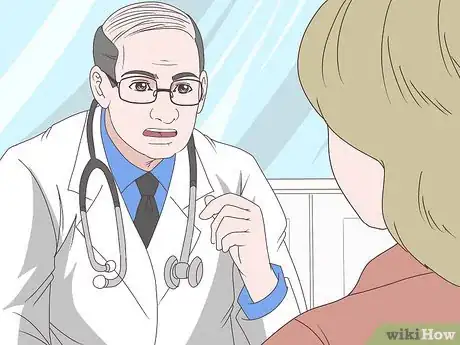
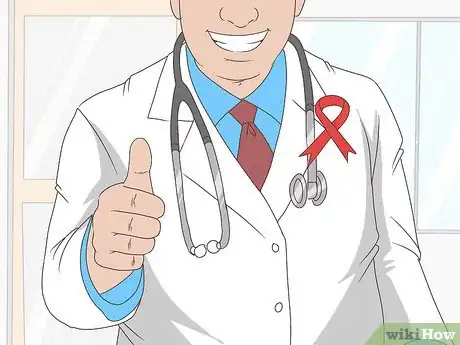
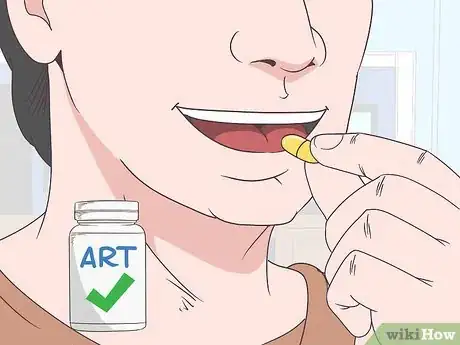
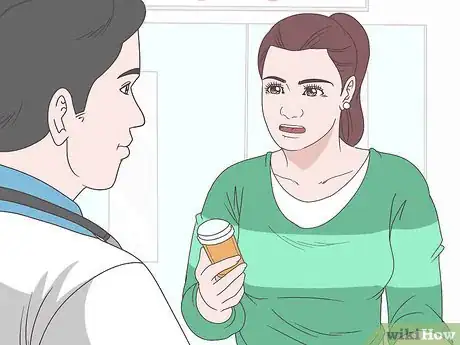
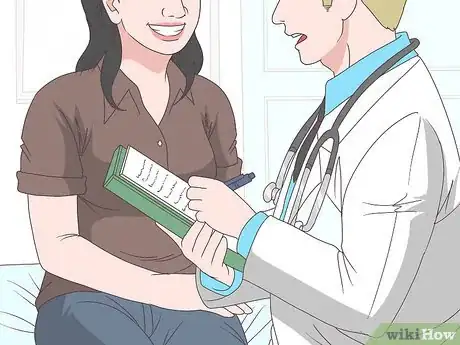
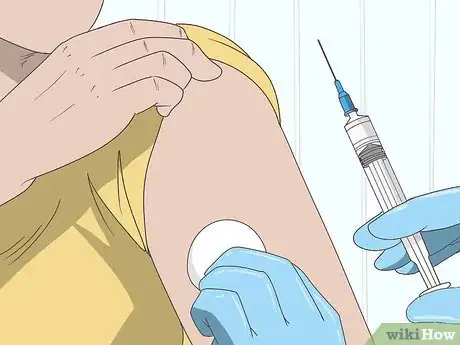
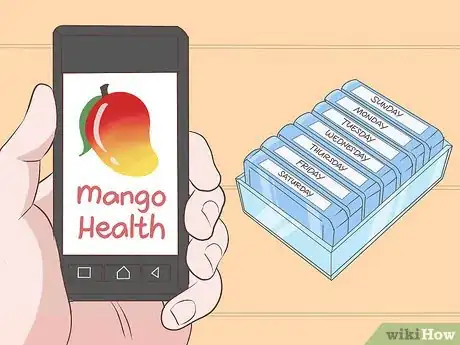


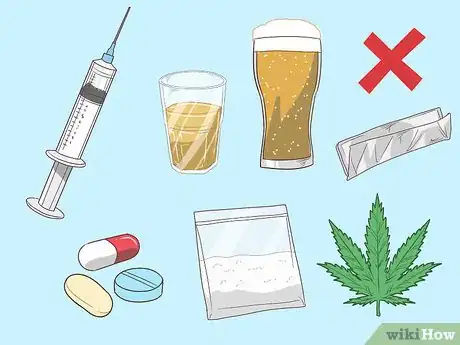


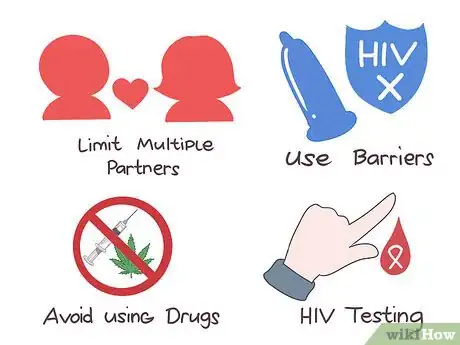
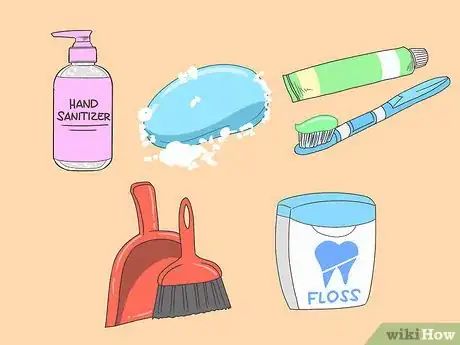



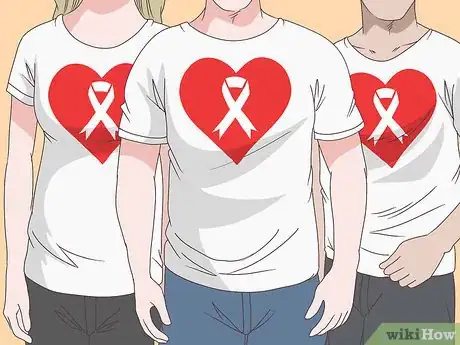
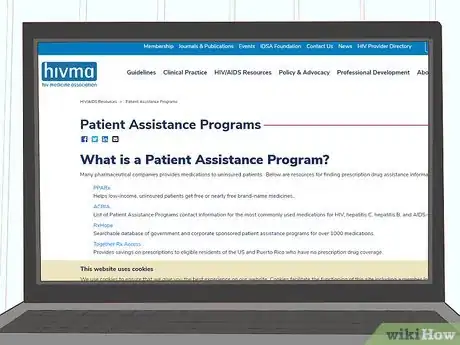
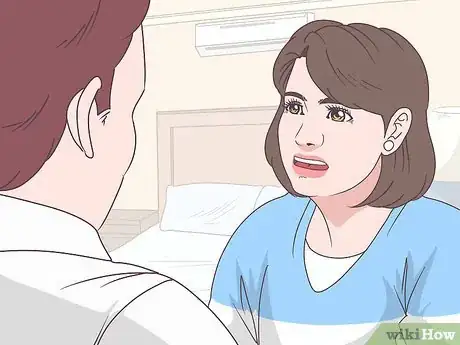
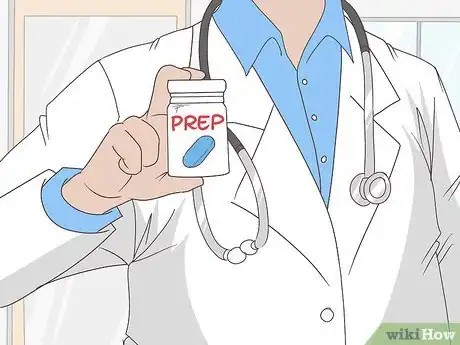
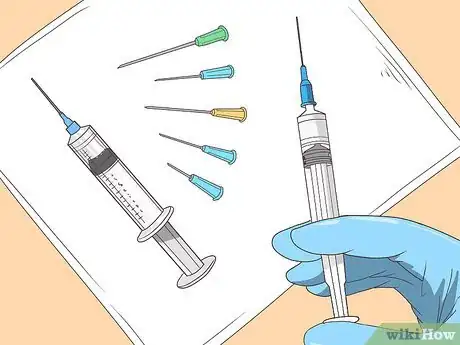
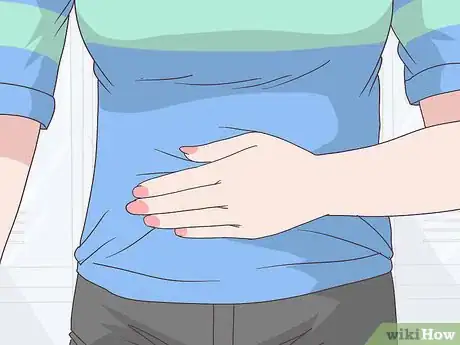

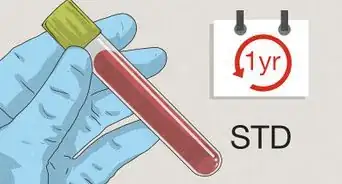
-Step-10.webp)
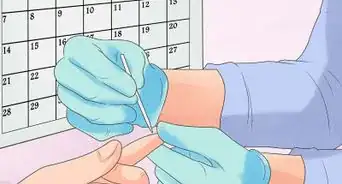















-Step-10.webp)
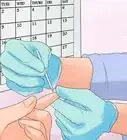



































Medical Disclaimer
The content of this article is not intended to be a substitute for professional medical advice, examination, diagnosis, or treatment. You should always contact your doctor or other qualified healthcare professional before starting, changing, or stopping any kind of health treatment.
Read More...